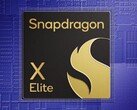Intel has been going through a tumultuous time lately, but that hasn't stopped the chip giant from throwing shade at competitors. Speaking at the Barclays Global Technology Conference, Intel's co-CEO Michelle Johnston boldly stated that Snapdragon-powered laptops suffer from high return rates, making them a challenge for retailers.
As Digital Trends notes, there is a lack of hard data regarding the actual percentage of product returns by customers, which makes her claims rather challenging to verify. However, it is somewhat unlikely that the top brass of a major company would make unfounded statements, so there might be some truth behind her critique after all.
It should be noted that the Snapdragon X Elite platform is still very much in its infancy, and it is not unfathomable that only the tech-savvy are aware of the many improvements that ARM-based computers bring. The majority of people, who simply want to get their work done, will presumably look elsewhere after learning that there is a plethora of software that is not yet optimized for Windows on ARM. However, ARM compatibility on Windows is undoubtedly in a better place now than ever, and the upward trajectory is likely to continue.
Once the software support reaches a point where it is no longer a hindrance to the system's viability for prospective buyers, the Snapdragon X Elite platform's adoption will conceivably increase. As of right now, Qualcomm on PC has a sub-1% market share, but that is likely to change in the future. With plans for launching lower-priced variants next year, Qualcomm clearly isn't sitting idle either. Provided that Qualcomm can overcome the pricing and adoption hurdles, it is safe to say that Snapdragon-powered laptops will pose a serious threat to Intel's x86 dominance.
Update: Qualcomm has dismissed Johnston's statement
It appears that Qualcomm has already taken notice of co-CEO Johnston's comments and has issued a response. According to Qualcomm, the return rates for Snapdragon-powered laptops remain within industry levels, effectively refuting Johnston's claim. We will continue to provide updates as the story develops.




















